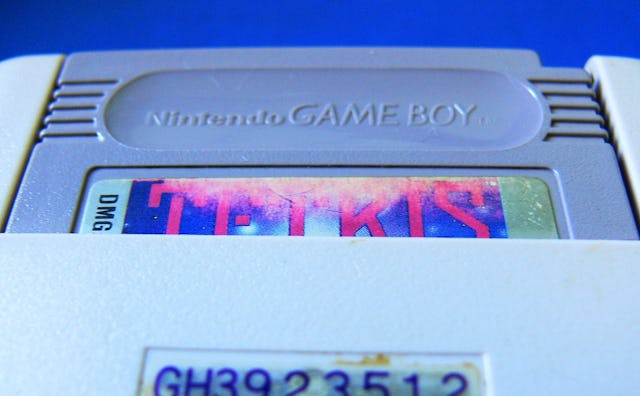Finally, Proof That Tetris Makes You Smarter

I played so much of it when I first got a computer that my dreams were filled with endless rows of hard-edged shapes dropping into place, turning one click at a time until they fit. Even awake, I saw Tetris shapes everywhere, mentally sliding and stacking them between buildings wherever I went.
I haven’t played Tetris in years, but it’s clearly time to pick it up again, because a PBS video series, “Braincraft,” suggests that playing Tetris can make you a better thinker. I knew it!
Okay, I didn’t know it. I just liked Tetris.
The effects of playing Tetris are physical as well as psychological. People who played for 1 1/2 hours a week for 3 months—probably a lot less than your average person plays Candy Crush—actually changed their brain structure. That’s not so weird on its own, as doing any sustained activity like that can change your brain structure, but in this case, their cerebral cortexes became thicker and other areas became more efficient and required less glucose to fuel tasks that used to require more. Additionally, people with PTSD had half as many flashbacks after playing the game regularly as people who didn’t. Researchers call it a “cognitive vaccine,” because it occupies the brain’s working memory and visual processing at the same time.
So what is it about these games that also makes us addicts? It all plays into what scientists call the “Zeigarnik Effect,” the brain’s natural tendency to remember unfinished tasks more than finished ones. Tetris, as well as Candy Crush and its derivatives, appeals directly to our natural desire to organize things, finish tasks and achieve goals. It’s infinitely challenging and yet satisfying at the same time. There’s something magical about a game where you’re presented with a continuing stream of unfinished tasks at the same time as you’re getting rewarded with small achievements. With Tetris in particular, where objects continue to rush towards you unless you pause the game, you have to move faster than your spatial judgment, working with the game instead of processing it in your mind. It’s the opposite of overthinking, but it still keeps your brain active and productive. We’re rewarded by achievement (and who doesn’t love that?), yet constantly re-challenged, and it’s all colorful and pretty but still visually simple.
So does more efficient thinking outweigh the addiction factor? Like me, there are people who dreamed in Tetris, and walked around mentally fitting objects together, or arranging their furniture in a more orderly way without realizing why they were doing it. There must be something about the simplicity of those Tetris shapes that leaves an imprint on the brain because Candy Crush, addictive as it is, leaves my head as soon as I stop playing. I can tell you one thing, it’s definitely not making me smarter.
This article was originally published on